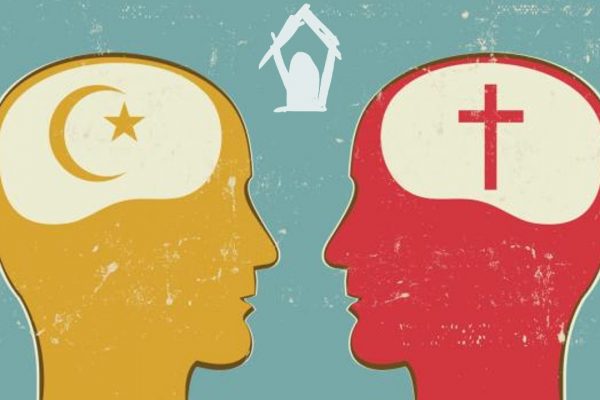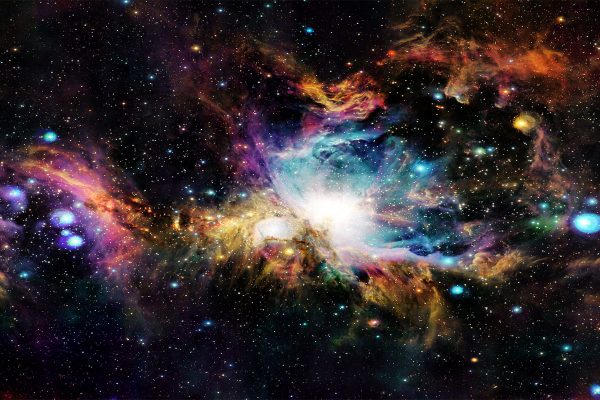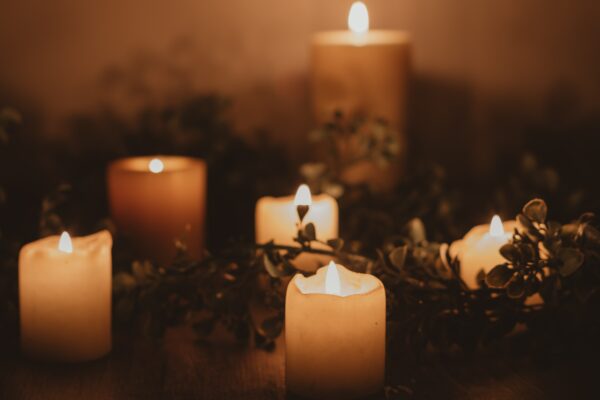Lady Mary’s Status in Islam
According to numerous Islamic narrations, Lady Mary is one of the four chosen women, namely Asiyah, Mary, Khadijah and Fatimah, the daughter of Prophet Muhammad. In the book ‘Conquests of Mecca,’ after Muhyiddin Arabi describes how masculinity and femininity are relinquishing aspects and not the truth of humanity, he quotes a narration from the Holy Prophet where he says, “The same way the Holy Prophet gave testimony regarding the perfection of men, he gave testimony about the perfection of women and he referred to Mary and Asiyah as the most perfect women” as seen in the following hadith:
“Many men have achieved perfection and among women, Mary daughter of ‘Imran and Asiyah wife of Pharoah.”
Lady Mary in the Qur’an
Anne Mary Schimmel writes: “Lady Mary has the most honorific status; she is the only woman who has been mentioned by name in the Qur’an and has been glorified and acknowledged as the virgin mother of Prophet Jesus.”
According to the Qur’an, Lady Mary was given the ability to speak with the Archangel Gabriel and converse with other angels. Her other qualities are as follows:
1. Masteress of the women of her age:
وَإِذْ قَالَتِ الْمَلاَئِكَةُ يَا مَرْيَمُ إِنَّ اللّهَ اصْطَفَاكِ وَطَهَّرَكِ وَاصْطَفَاكِ عَلَى نِسَاء الْعَالَمِينَ
And when the angels said: ‘O Mary, Allah has chosen you and purified you and He has chosen you above the women of the worlds.’ (3:42)
2. Chastity:
Mary is chaste and virtuous. She has been referred to as a person who Allah blew into her from His own spirit:
وَمَرْيَمَ ابْنَتَ عِمْرَانَ الَّتِي أَحْصَنَتْ فَرْجَهَا فَنَفَخْنَا فِيهِ مِن رُّوحِنَا وَصَدَّقَتْ بِكَلِمَاتِ رَبِّهَا وَكُتُبِهِ وَكَانَتْ مِنَ الْقَانِتِينَ
And Mary, daughter of Imran, who guarded the chastity of her womb, so We breathed into it of Our spirit… (66:12)
Elsewhere, the Qur’an says:
قَالَتْ رَبِّ أَنَّى يَكُونُ لِي وَلَدٌ وَلَمْ يَمْسَسْنِي بَشَرٌ…
She [Mary] said, ‘My Lord, how shall I have a child seeing that no human has ever touched me?’ (3:47)
قَالَتْ أَنَّى يَكُونُ لِي غُلَامٌ وَلَمْ يَمْسَسْنِي بَشَرٌ وَلَمْ أَكُ بَغِيًّا
She [Mary] said, ‘How shall I have a child seeing that no human being has ever touched me, nor have I been unchaste?’ (19:20)
3. Chosen by God:
وَإِذْ قَالَتِ الْمَلاَئِكَةُ يَا مَرْيَمُ إِنَّ اللّهَ اصْطَفَاكِ وَطَهَّرَكِ وَاصْطَفَاكِ عَلَى نِسَاء الْعَالَمِينَ
And when the angels said, ‘O Mary, Allah has chosen you and purified you and He has chosen you above the world’s women. (3:42)
4. A sign of God:
وَجَعَلْنَاهَا وَابْنَهَا آيَةً لِّلْعَالَمِينَ
… and We made her and her son a sign for all the nations. (21:91)
In this verse, Mary and her son, Jesus, have been introduced as a single sign, with emphasis on Lady Mary. By mentioning her name and showing Prophet Jesus’ kinship with her, the greatness of her personality is further conveyed. The absence of the plural form of ‘sign’ is probably because Mary and Jesus were very close to each other.
If there were a substantial difference between them, they would have been mentioned in the plural format i.e. signs for all the nations, like day and night which are considered as two signs: “We made the night and the day two signs” (17:12). This verse has been revealed in the plural form so that the significant and basic difference between night and day can be completely clear.
5. Most truthful:
Lady Mary was siddiqah, that is, one of the most truthful people (5:75). The most truthful, the witnesses, the righteous, and the prophets are those upon whom God has sent His blessings:
وَمَنْ يُطِعِ اللَّهَ وَالرَّسُولَ فَأُولَٰئِكَ مَعَ الَّذِينَ أَنْعَمَ اللَّهُ عَلَيْهِمْ مِنَ النَّبِيِّينَ وَالصِّدِّيقِينَ وَالشُّهَدَاءِ وَالصَّالِحِينَ ۚ وَحَسُنَ أُولَٰئِكَ رَفِيقًا
“Whoever obeys Allah and the Apostle —they are with those whom Allah has blessed, including the prophets and the truthful, the martyrs and the righteous and excellent companions are they!” (4:69).
Every Muslim in his ritual prayer asks God to let him join them: “Guide us on the straight path, the path of those whom You have blessed.”
6. Devotee:
Lady Mary has been described in the Qur’an as one of the devotees or obedient (qanitin) servants of God.
7. Lady Mary, a Prophetess:
Based on several verses of the Qur’an, it has been suggested that Lady Mary was a prophetess. Can a woman bear the responsibility of a social position as big as delivering a message? What have the previous Revealed Books said about this matter and what are some Islamic proofs and sources? Because this topic is quite dated in our current society, it has not been considerably discussed. The Old Testament and New Testament identify women who have had the specifications of ‘‘prophethood.’ Deborah, wife of Lappidoth, Huldah spouse of Shallum, the four daughters of Philip and Hannah, have been referred to as prophetesses.
Distinguishing between prophetic (anbiyai) revelation and legislative (tashri‘i) revelation, Ayatollah Jawadi Amuli argues for the possibility of women receiving the former.
In Women in the Mirror of Glory and Beauty, he states that the Prophetic revelation implies that an individual becomes aware of what is happening in the world and what is to come of it. He knows about his future and is aware of the people’s future. This type of prophethood is a prerequisite for legislative prophethood and not the same.
Ayatollah Mutahhari offers an explanation of the Qur’anic perspective of Lady Mary:
“Her state reached the point where she used to worship at the altar and the angels would speak to her and converse with her in dialogue. Provisions were provided for her from the unseen. Her actions had reached an extremely high rank from a spiritual perspective that the prophet of her time was astonished by her. She was far ahead of Zecharias, who would always find himself bewildered and amazed when confronted with her.”
This post was originally featured here.





